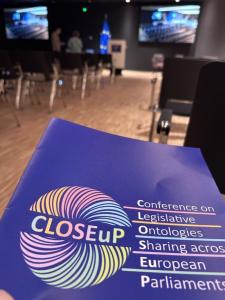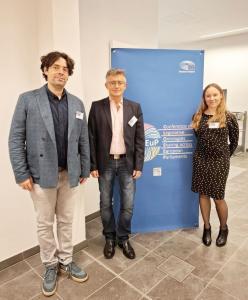What are the possibilities that legislative ontologies open up? How can we work together to strengthen our shared European legal space and make our processes not just efficient but truly interoperable?
CLOSEuP 2024, the Conference on Legislative Ontologies Sharing across European Parliaments, organised by the European Parliament on 17-18 October 2024 in Luxembourg, sought to answer these questions and more.
The conference gathered knowledge and data management experts from national chambers from Europe and the EU institutions, including many colleagues from the Publications Office of the EU such as their Reference Data team.
Together they explored the transformative potential of legislative ontologies such as the European Legislation Identifier for Draft Legislation known as ELI-DL.
ELI-DL builds on the European Legislation Identifier (ELI), a framework that has been successfully implemented by 19 Member States, with an additional 6 working towards full implementation by 2025.
ELI-DL adds connectivity and structure to legislative drafting in the entire process of lawmaking. It makes legal information accessible, transparent, and connected across all the EU institutions and Member States, administrations, businesses and citizens alike. It creates a Europe where legislative processes are not confined by national borders but are instead open, accessible, and fully interoperable.
Underlining the importance of working together, Mr Franck NOEL, Director at the Publications Office of the EU, said ‘We are partners on this journey toward a truly digital legal framework. And what better moment than now to advance this work? We are at a critical moment, where Europe is focusing on its twin green and digital transitions, developing technologies of the future, and ensuring digital technology diffusion. The goal is to ensure that Europe is at the forefront of digital connectivity, access, and collaboration.’
In addition to the focus on ontologies and the ELI-DL, the Publications Office of the EU highlighted a suite of valuable resources available through their EU Vocabularies website (https://op.europa.eu/en/web/eu-vocabularies). By leveraging these resources, organisations can indeed enhance their semantic interoperability and contribute to the further enrichment of the multilingual controlled vocabularies.
Learn more information about the conference: https://www.europarl.europa.eu/closeup/en/closeup-2024




